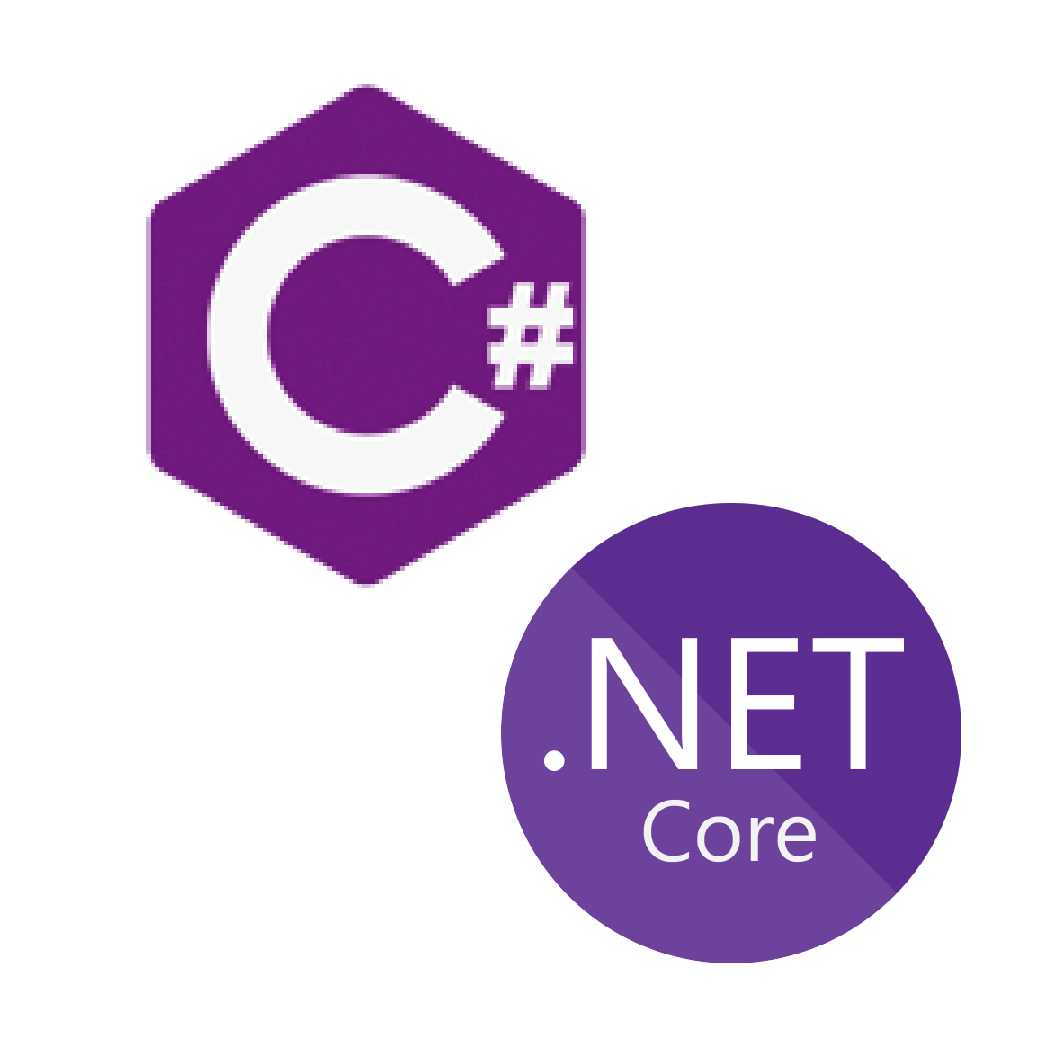C# .NET: Powering Modern Software Development
Harnessing the Power of C# .NET: Building Robust and Scalable Applications.

Everything you need to know about
C# .Net
C# .NET has emerged as a powerful and versatile programming language and framework in software development. With its rich features, robust performance, and extensive library support, C# .NET has become a preferred choice for building various applications, from desktop software to web applications and mobile apps. This article will explore what C# .NET is, its key features and benefits, and its relevance in the modern software development landscape. Need help with your project? As a top nearshore .NET development company, we can have butts in seats in less than 2 weeks.
What is C# .NET?
C# (pronounced “C sharp”) is a modern, object-oriented programming language developed by Microsoft. It was introduced in 2000 as part of the Microsoft .NET software development framework, providing a comprehensive set of tools and libraries for building applications. C# is designed to be simple yet powerful and incorporates features from other programming languages like C++, Java, and Visual Basic.
Our Executive Team

Common Industries we provide C# vs .Net Services:
Healthcare & Life Sciences
SaaS & Information Services
Manufacturing
Financial Services & FinTech
Retail & E-Commerce
Insurance
Logistics & Automotive
Travel & Hospitality
Rich Library Support and
Benefits of C# .NET:
The .NET framework provides a vast collection of class libraries and APIs that developers can leverage to build feature-rich applications. These libraries cover areas such as user interface development, database connectivity, networking, cryptography, and more, reducing the need for developers to build everything from scratch.
Cross-Platform Development
With the introduction of .NET Core, an open-source, cross-platform implementation of .NET, C# developers can now build applications that run on multiple platforms, including Windows, macOS, and Linux. This allows for greater flexibility and reach in software development.
Productivity and Tooling
C# has a rich ecosystem of integrated development environments (IDEs) and tools like Visual Studio and Visual Studio Code. These tools offer advanced code editing features, debugging capabilities, and productivity-enhancing extensions, making the development process efficient and enjoyable.


Common Industries we provide C# .Net Services:

COST-EFFECTIVE DEVELOPERS
Our Software Developers and Engineers cost
on average $45 to $65 per hour

HIGHEST QUALITY DEDICATED TEAMS
Access to the TOP 1% of Nearshore Software Development resources in Latin America

TIME SENSITIVE DEVELOPMENT
Sonatafy’s Nearshore Talent Acquisition can place qualified Software Engineering teams in as quick as 2 weeks
Relevance in Modern
Software Development:
C# .NET remains highly relevant in the modern software development landscape for several reasons:
C# .NET enables developers to build scalable, high-performance web applications using frameworks like ASP.NET and ASP.NET Core. These frameworks provide robust tools for building web APIs, creating dynamic web pages, and implementing secure authentication and authorization.
Desktop Application Development
C# .NET is widely used for building desktop applications using Windows Presentation Foundation (WPF) or Windows Forms. These frameworks offer rich UI capabilities, data binding, and event-driven programming, making creating feature-rich and visually appealing applications easier.
Mobile App Development
With the introduction of Xamarin, a cross-platform mobile development framework, C# .NET allows developers to build native mobile apps for iOS and Android using shared code. Xamarin leverages the power of C# and the .NET framework to deliver native performance and seamless integration with native device capabilities.

Interested In Working With Sonatafy?
What you need to know:
Cloud-Based Applications for C# .NET
C# .NET is well-suited for developing cloud-based applications leveraging Microsoft Azure, a robust cloud computing platform. With Azure, developers can build scalable, reliable, and secure cloud applications using Azure Functions, Azure Storage, and Azure App Service.
Data-Driven Applications
C# .NET provides excellent data access and manipulation support, making it ideal for developing data-driven applications. Developers can use frameworks like Entity Framework and ADO.NET to connect to databases, query data, and perform operations such as data validation and transaction management.
Game Development
C# .NET is increasingly used in game development with the popularity of the Unity game engine. Unity supports C# as its primary scripting language, allowing developers to create interactive and visually appealing games across multiple platforms.
Internet of Things (IoT): C# .NET is finding its place in IoT development, enabling developers to build applications that interact with IoT devices. The .NET framework offers IoT-specific libraries and tools, such as Azure IoT Hub and .NET MicroFramework, facilitating connectivity, data processing, and device management in the IoT ecosystem.
Examples of Successful Applications Built with C# .NET:
- Microsoft Office Suite: Many components of the Microsoft Office suite, such as Word, Excel, and PowerPoint, are built using C# .NET. These applications demonstrate the power and versatility of C# in developing complex productivity tools.
- Airbnb: The backend services of the Airbnb platform are built using C# .NET, demonstrating its scalability and reliability in handling large-scale applications.
- Stack Overflow: The popular question-and-answer platform, Stack Overflow, utilizes C# .NET for its backend and handles many user-generated content and interactions.
- Reuters News Agency: Reuters, a renowned news agency, uses C# .NET for its content management system, allowing efficient creation, organization, and distribution of news articles and multimedia content.
- ASP.NET Identity: ASP.NET Identity, a membership system for building authentication and authorization functionality in web applications, showcases the security features and flexibility of C# .NET.
C# .NET has established itself as a robust and versatile programming language and framework in software development. Its key features, extensive library support, cross-platform capabilities, and relevance in various domains make it a preferred choice for building modern applications. Whether web development, desktop applications, mobile apps, cloud-based solutions, or IoT applications, C# .NET provides developers with the tools and capabilities necessary to create high-performance and feature-rich software solutions.
What are the Differences Between C# and .NET?
C# and .NET are terms often used in software development but refer to different concepts. To better understand their differences, let’s delve into the specifics of each.
C#:
C# (pronounced “C sharp”) is a programming language developed by Microsoft. It was introduced in the early 2000s and has since become one of the most popular languages among developers. C# is an object-oriented language incorporating features from various programming languages, including C++, Java, and Visual Basic. It provides a powerful and expressive syntax that allows developers to create robust, efficient, and scalable applications.
C# is known for its simplicity, readability, and ease of use. It offers many features, including automatic memory management, type safety, strong typing, and support for modern programming paradigms such as asynchronous programming. C# is primarily used in the Microsoft ecosystem and is often employed for building Windows, web, and mobile applications (1).
“C# is considered a great choice for Windows desktop apps, enterprise solutions, and even game development, as Unity game engine is built on C#.”
– Altextsoft
.NET:
.NET is a software development framework created by Microsoft. It provides a comprehensive set of tools, libraries, and runtime environments for developing and executing applications. The .NET framework comprises several components, including the Common Language Runtime (CLR), the Base Class Library (BCL), and various development frameworks, such as ASP.NET and Windows Forms.
The CLR is a runtime environment that executes code in C#, Visual Basic, and F#. It provides services such as memory management, exception handling, and security. The BCL is a collection of reusable classes, data types, and APIs that developers can leverage in their applications. The development frameworks, such as ASP.NET and Windows Forms, provide specific functionalities and tools for building web and desktop applications.
.NET supports multiple programming languages, and C# is one of the languages that can be used with the framework. Other languages compatible with .NET include Visual Basic, F#, and C++. This language interoperability allows developers to write code in different languages while leveraging the same underlying framework and libraries.
%
TOP NEARSHORE TALENT
%
ATTRITION RATE
%
ENGLISH PROFICIENCY
RESOURCES DEPLOYED
Differences between
C# .NET:
C# is a programming language, while .NET is a software development framework. C# is used to write code, define classes, and implement application logic, whereas .NET provides the runtime environment, libraries, and tools necessary to execute and support the execution of the applications.
Language vs. Framework
C# is a specific programming language, whereas .NET encompasses a broader set of components, including the runtime, libraries, and development frameworks.
Language Interoperability
C# is a language that can be used with the .NET framework alongside other languages such as Visual Basic and F#. This language interoperability allows developers to choose the language that best suits their preferences and requirements while still leveraging the capabilities of the .NET framework.
Portability: C# is not inherently portable, as it is primarily associated with the Microsoft ecosystem.
However, with the introduction of .NET Core, an open-source, cross-platform implementation of .NET, developers can now write C# code that runs on various platforms, including Windows, macOS, and Linux. .NET Core allows for greater portability and flexibility in deploying C# applications.
C# is a programming language with a powerful and expressive syntax for building applications. At the same time, .NET is a software development framework that encompasses the runtime, libraries, and tools necessary to develop and execute applications. C# is often used within the .NET framework, taking advantage of the framework’s capabilities and resources. The combination of C# and .NET provides developers a robust and comprehensive platform for building various applications across different platforms and domains.
Difference between .NET and C#:
.NET and C# are related but distinct concepts in software development (2).
“So I find it fascinating that amid constant evolution and change, one of the current trends in 2023 is the continued prevalence of .NET development with the C# programming language.”
– Educative
Here’s a detailed explanation of their differences:
What is .NET? .NET is a software development framework created by Microsoft. It provides a comprehensive set of tools, libraries, and runtime environments for building and executing applications. .NET consists of several components, including the Common Language Runtime (CLR), the Base Class Library (BCL), and development frameworks such as ASP.NET and Windows Forms.
The CLR is a runtime environment that manages the execution of code written in different languages, including C#, Visual Basic, and F#. It provides services like memory management, exception handling, and security. The BCL is a collection of reusable classes, data types, and APIs that developers can utilize in their applications. The development frameworks, such as ASP.NET and Windows Forms, offer specific functionalities and tools for web and desktop application development, respectively.
.NET Pros and Cons: Pros:
- Comprehensive framework: .NET offers a wide range of tools, libraries, and frameworks that simplify and accelerate application development.
- Language interoperability: .NET supports multiple programming languages, allowing developers to choose the language that best suits their preferences and requirements.
- Cross-platform capabilities: With .NET Core, developers can build applications that run on Windows, macOS, and Linux, providing greater flexibility and reach.
- Strong community support: The .NET community is active and offers extensive resources, documentation, and support.
Cons:
- Learning curve: The vastness of the .NET framework may require some time for developers to grasp and utilize its features effectively and thoroughly.
- Windows-centric focus: While .NET Core offers cross-platform capabilities, the framework is still strongly associated with the Windows ecosystem.
- Performance: While performance has improved significantly in recent years, some argue that other frameworks may offer better performance in specific scenarios.
- What is C#? C# (pronounced “C sharp”) is a modern, object-oriented programming language developed by Microsoft. It was introduced in the early 2000s as part of the .NET initiative. C# is designed to be simple yet powerful and incorporates features from other programming languages like C++, Java, and Visual Basic.
C# is widely used for building various applications, including web applications, desktop software, and mobile apps. It offers features like strong typing, automatic memory management, and support for modern programming paradigms such as asynchronous programming.
C# Pros and Cons: Pros:
- Object-oriented programming: C# supports object-oriented programming principles, enabling developers to write code that is modular, reusable, and easier to maintain.
- Language features: C# provides a rich set of language features, such as LINQ (Language Integrated Query), asynchronous programming, and lambda expressions, which enhance productivity and code expressiveness.
- Integration with .NET framework: C# seamlessly integrates with the .NET framework, allowing access to many libraries and tools.
- Strong community support: C# has a large and active community that provides resources, frameworks, and libraries to support developers.
Cons:
- Windows-centric focus: Similar to the .NET framework, C# is strongly associated with the Windows ecosystem, although it has become more cross-platform with the introduction of .NET Core.
- Learning curve: As with any programming language, a learning curve is associated with mastering C# and its various features.
- Limited mobile support: While C# can be used for mobile app development with frameworks like Xamarin, it may have a different level of ecosystem support than other languages.
Main Differences between C# vs .NET:
- C# is a programming language, while .NET is a software development framework.
- C# is used to write code, define classes, and implement application logic, while .NET provides the runtime environment, libraries, and tools necessary to execute and support the execution of applications.
- C# is a language that can be used with the .NET framework and other languages like Visual Basic and F#. This language interoperability allows developers to choose the language that best suits their preferences and requirements while leveraging the capabilities of the .NET framework.
- C# is primarily associated with the Microsoft ecosystem, although it has become more cross-platform with the introduction of .NET Core. On the other hand, .NET encompasses a broader set of components, including runtime, libraries, and development frameworks.
- C# is an object-oriented programming language that supports features like strong typing, automatic memory management, and support for modern programming paradigms. .NET, on the other hand, provides services like memory management, exception handling, and security through the Common Language Runtime (CLR) and offers a comprehensive set of libraries and tools.
.NET Development Company
Awards & Recognitions
Helping take our clients’ software development businesses to the next level has been quite an experience, and we are not slowing down any time soon. Providing a memorable experience and far surpassing our customers’ software development and solutions goals is one of the most rewarding experiences of our company to date.
We’re ready to start helping your company grow with our industry-leading custom software development solution, are you?

Earning Trust & Loyalty for our Software Development Services
Our executive team proudly provides complete software development solutions in the healthcare, SaaS, Manufacturing, and FinTech fields from deployment to completion.
Our client-centric software development solutions have made us the healthcare app development provider of choice for clients such as Akido Labs, Datacubed Health, Sema Technologies, and Semantic AI, among others. With thousands of software development engineers deployed to date, clients love our personalized high-touch approach.
With high-quality delivery web development services and strong customer support and management, we give you the ability to focus on business decisions rather than software development issues.
Sonatafy Technology services can dramatically
improve the C# .Net Services.
Our Software Development Clients Have Spoken.

“We increased our productivity and quality by extending our team with Sonatafy resources. They are part of our ‘family’. Their passion, dedication, experience, and wisdom has been nothing short of impressive.”

“We have been using Sonatafy for software team augmentation. Their vetting process is extremely through and has saved us a huge amount of time. All of the candidates presented have been outstanding and have fit into our team perfectly.”

“The Sonatafy team consists of members who are dedicated, personable, and attentive. They will search tirelessly to match the right talent to meet your skills and budgetary requirements. Regardless of your situation, you cannot go wrong with Sonatafy.”

“The Sonatafy team has continually impressed us with the quality of their engineers — we have found excellent engineering leaders in their contractors who have helped tremendously. They really are an integral part of our team, and we’re very thankful for Sonatafy’s professional leadership in this space. I heartily recommend them to augment anyone’s teams or projects.”

“At IMAIGE Analytics, we are driven by purpose and outcomes. Sonatafy has been the exact type of partner we need to help us deliver on both. They’ve found solutions specific to our purpose and needs, their resources have contributed like long time team members from day one and they seem dedicated to progressively better outcomes from the start. Thanks to the team and to Steve for taking the time to make our business better!”

“The entire team at Sonatafy greatly surpassed our expectations. We require very specific skill sets and the team did an incredible job of screening and selecting top – notch candidates. Sonatafy’s attention to detail, professionalism, open communication, and collaboration with us ensured that we found highly skilled talent that fit seamlessly into our company’s culture. I can’t recommend them strongly enough.”

“Sonatafy makes it easy to find great and professional talent, with their help we have been able to solidify our team. Their process and communication is a refresher and a weight off our shoulders.”

I’ve used Sonatafy Technologies for the last 5 + years at several of my companies both small and large, in a staff augmentation capacity. I have been consistently impressed with the high – quality of technical skills as well as the team member’s high level of engagement and dedication to my projects. I’ve always considered my dedicated Sonatafy resources as members of my team , and their contributions and performance has been excellent. The combination of high performance and afford ability has been an outstanding benefit , and I would highly recommend using Sonatafy Technologies as your near shore technology partner.
The Difference Between C# and .NET
Through The Lens Of JavaScript:
In the context of JavaScript, the relationship between C# and .NET can be understood by drawing parallels to JavaScript’s runtime environment and core libraries.
What is a Runtime Environment?
A runtime environment provides the necessary infrastructure to execute code in a particular programming language (3).
“The runtime environment is the environment in which a program or application is executed. It’s the hardware and software infrastructure that supports the running of a particular codebase in real time.”
-Techopedia
In the case of JavaScript, the runtime background includes the JavaScript engine (such as V8 in Chrome) responsible for interpreting and executing JavaScript code.
Similarly, the Common Language Runtime (CLR) in the .NET framework serves as a runtime environment for executing code written in C#, Visual Basic, and F#. It provides essential services such as memory management, exception handling, and security.
Core Library and Built-in JavaScript Objects and Classes
JavaScript has a core library that provides built-in objects and classes to facilitate everyday operations and functionalities. These include Array, String, Math, and courses like Date and RegExp. These core library components are available in any JavaScript runtime environment.
In comparison, the .NET framework provides the Base Class Library (BCL), which serves a similar purpose.
The BCL consists of many classes and APIs for tasks such as string manipulation, file I/O, networking, and more. These components are available to developers using languages within the .NET ecosystem, including C#.
Back to C# and .NET: Drawing parallels to JavaScript, C# is like the programming language, similar to JavaScript, and .NET is like the runtime environment and libraries, comparable to the JavaScript engine and core library.
C# is used to write code, define classes, and implement application logic, just as JavaScript is used in the same context. However, C# is primarily associated with the .NET ecosystem, leveraging the runtime services and libraries provided by the .NET framework.
Main Difference between C# vs .NET:
The main difference between C# and .NET lies in their scope and purpose. C# is a specific programming language designed for creating software. At the same time, .NET is a comprehensive framework that provides the necessary infrastructure, libraries, and runtime environment to execute applications written in various languages, including C#. Click for more information on C# vs .NET
Implementation, Architecture, Usage, and Support:
Implementation: C# is implemented as a programming language with its syntax rules, features, and compiler. On the other hand, .NET is implemented as a framework that includes the runtime environment (CLR), the Base Class Library (BCL), and development frameworks.
Architecture: C# follows an object-oriented programming (OOP) paradigm and provides features such as classes, objects, inheritance, and polymorphism. .NET architecture includes the CLR, which manages the execution of code, and the BCL, which provides a wide range of classes and APIs for everyday tasks.
Usage: C# is commonly used for building a wide range of applications, including web applications, desktop software, mobile apps, game development, and more. It is trendy within the Microsoft ecosystem and is often used in conjunction with the .NET framework. .NET, on the other hand, is used as the underlying framework for developing and executing applications across various domains and platforms.
Support: Both C# and .NET enjoy strong support from Microsoft and the developer community. Microsoft provides regular updates, documentation, and resources for C# and the .NET framework. The community is active and offers forums, online communities, and libraries that assist developers in leveraging the capabilities of C# and .NET effectively.
C# and .NET are distinct but interconnected concepts in software development. C# is a programming language used to write code and implement application logic. At the same time, .NET is a comprehensive framework that provides the necessary runtime environment, libraries, and tools for developing and executing applications. Understanding the differences between C# and .NET is crucial for developers to make informed choices and effectively utilize these technologies (https://sonatafy.com/net-technologies/) in their software projects.
Is C# and .NET the same?
No, C# and .NET are not the same. C# is a programming language developed by Microsoft, while .NET is a software development framework that provides a runtime environment, libraries, and tools for developing and executing applications. C# is often used within the .NET framework, but .NET also supports other programming languages.
What is .NET & C#?
.NET is a software development framework created by Microsoft. It includes components like the Common Language Runtime (CLR), the Base Class Library (BCL), and various development frameworks such as ASP.NET and Windows Forms. .NET provides the infrastructure and resources needed to develop and run applications.
C# (pronounced “C sharp”) is a programming language developed by Microsoft. It is an object-oriented language incorporating C++, Java, and Visual Basic features. C# is commonly used within the .NET framework but can also be used independently with other platforms.
Is C#/.NET still used?
Yes, both C# and .NET are still widely used in the software development industry. C# is a popular language known for its simplicity, versatility, and strong support from Microsoft. It is used for various applications, including web development, desktop software, mobile apps, game development, and more.
.NET continues to evolve and is actively maintained by Microsoft. With the introduction of .NET Core, an open-source, cross-platform implementation of .NET, the framework has gained even more popularity and usage across different platforms, including Windows, macOS, and Linux.
Do I need .NET to run C#?
in most cases, you will need the .NET framework to run C# applications. The .NET framework provides the necessary runtime environment, libraries, and tools for executing C# code. The runtime environment, known as the Common Language Runtime (CLR), handles tasks such as memory management, exception handling, and security.
However, with the introduction of .NET Core, there is now an option for developing and running C# applications without relying on the whole .NET framework. .NET Core allows for a more lightweight and modular approach to building applications, and it provides a cross-platform runtime that can be used on various operating systems.
While .NET is not strictly required to run C# code, it is the most common and widely supported environment for developing and executing C# applications. Using the entire .NET framework or .NET Core depends on platform requirements, performance considerations, and project dependencies.
References:
- C# is considered a great choice for Windows desktop apps, enterprise solutions, and even game development, as Unity game engine is built on C#. – Altexsoft Quote
https://www.altexsoft.com/blog/c-sharp-pros-and-cons/ - So I find it fascinating that amid constant evolution and change, one of the current trends in 2023 is the continued prevalence of .NET development with the C# programming language. – Educative Quote
https://www.educative.io/blog/c-sharp-dot-net-relevance - The runtime environment is the environment in which a program or application is executed. It’s the hardware and software infrastructure that supports the running of a particular codebase in real time.– Techopedia
https://www.techopedia.com/definition/5466/runtime-environment-rte









